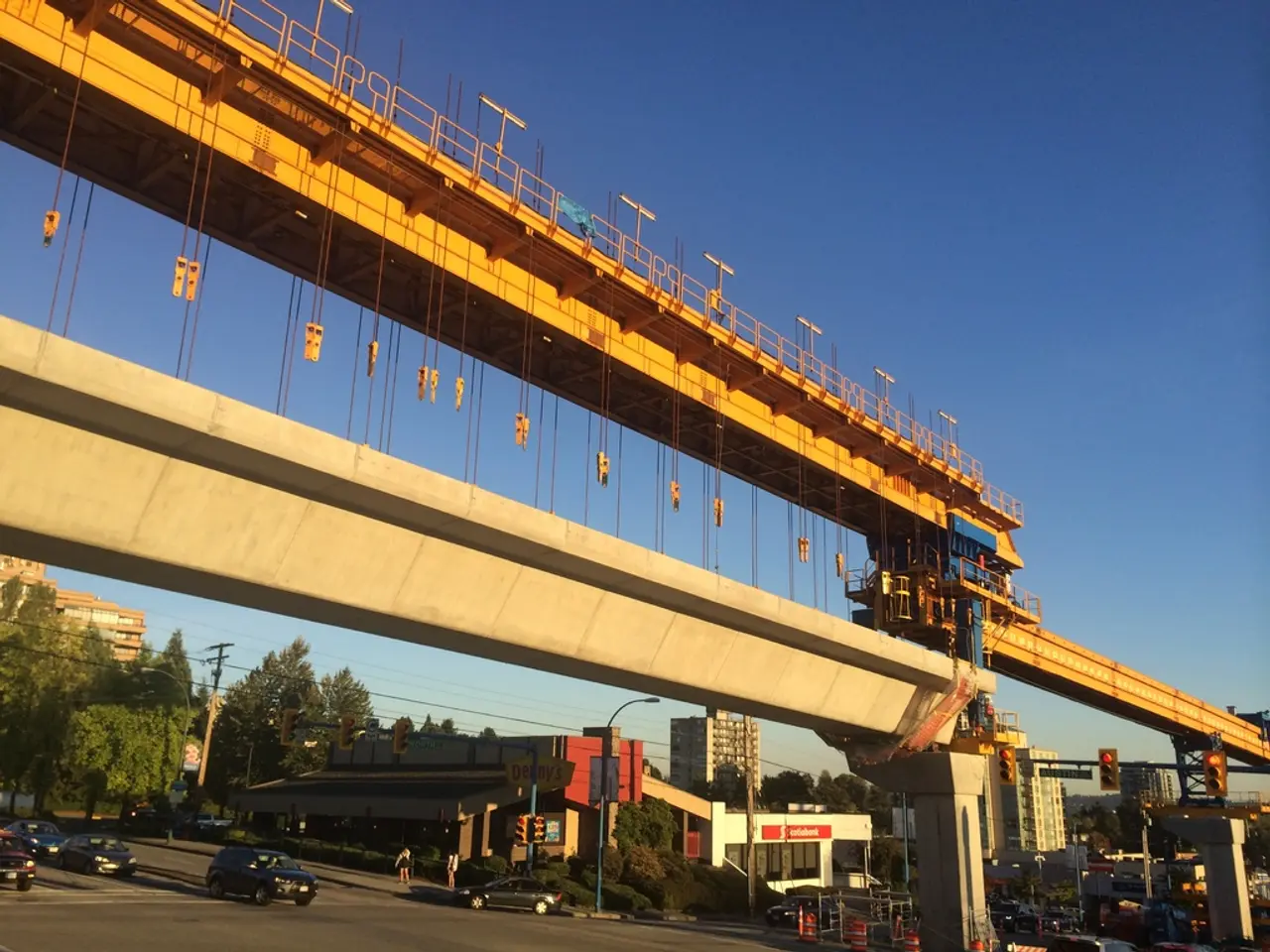Governor Tina Kotek proposes gas tax rise and DMV fee enhancements to avoid transportation sector layoffs and maintain current services.
Governor Kotek Proposes Urgent Transportation Funding Plan
In a bid to address a significant funding gap at the Oregon Department of Transportation (ODOT), Governor Tina Kotek has unveiled a comprehensive transportation funding plan. The proposal, which is set to be discussed during a special legislative session starting August 29, includes several key increases aimed at securing funding for the State Highway Trust Fund for the 2025-27 biennium [1][4][5].
The plan proposes a 6-cent increase in the state's gas tax, raising it to 46 cents per gallon. With federal and city taxes, drivers in cities like Portland would pay approximately 74.4 cents per gallon in total taxes on fuel [4]. In addition, base car registration fees would double from $42 to $85, affecting both conventional and electric vehicles [1][4]. Title fees would also increase by $139, bringing the total base title fee to $216 [4][5]. Lastly, the state's payroll tax for transit would be doubled from 0.1% to 0.2%, aiming to boost funding for transit services statewide [1][5].
The funding plan is designed to prevent layoffs at ODOT, where about 10% of the workforce faced potential layoffs without new funding [1][3]. It also aims to support ongoing maintenance projects and infrastructure development. Notably, the proposal includes the repeal of some statutes related to tolling [6].
Governor Kotek has emphasized the urgency of this plan, stating that it is crucial to maintain infrastructure and transit operations while seeking longer-term transportation funding solutions [3][4]. Top Democrats have also announced plans to schedule multiple public hearings on the proposal prior to the special session [7].
However, the proposal has faced criticism from some Republicans who argue against the tax and fee hikes [8]. Governor Kotek remains confident that enough lawmakers from both parties will show up and vote for the funding package [9]. If passed, the funding plan would allow the state transportation agency to pay its bills and help local governments and public transit providers maintain their current service levels.
As of Thursday morning, no additional details about the public hearings have been announced [10]. The special session is expected to end on Monday, Sept. 1 [11]. The Oregon Department of Transportation initiated a wave of layoffs last month due to a $350 million shortfall [12]. The proposed changes aim to address this funding gap and secure a stable future for Oregon's transportation infrastructure.
[1] OregonLive.com [2] Oregon Public Broadcasting [3] The Oregonian [4] The Statesman Journal [5] The Oregonian [6] The Oregonian [7] The Oregonian [8] The Oregonian [9] The Oregonian [10] The Oregonian [11] The Oregonian [12] The Statesman Journal
- The management of Oregon Department of Transportation (ODOT) is hoping for support from the legislature, as Governor Kotek's proposed transportation funding plan aims to prevent layoffs affecting about 10% of the workforce.
- The business community and the general public are closely watching the discussion on Oregon's infrastructure as politics and finance converge in debates about increasing gas taxes, registration fees, and payroll taxes for transit.
- With the special legislative session scheduled to start August 29 discussing Governor Kotek's transportation funding plan, ongoing maintenance projects and future infrastructure development within the rail, road, and transit systems across the state heavily rely on the outcome of this significant political and financial decision.




